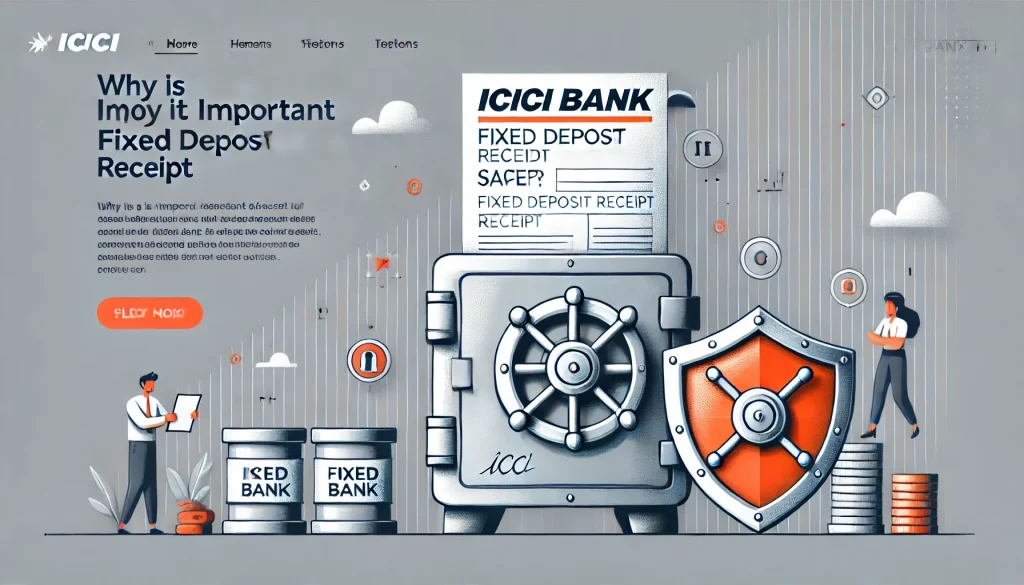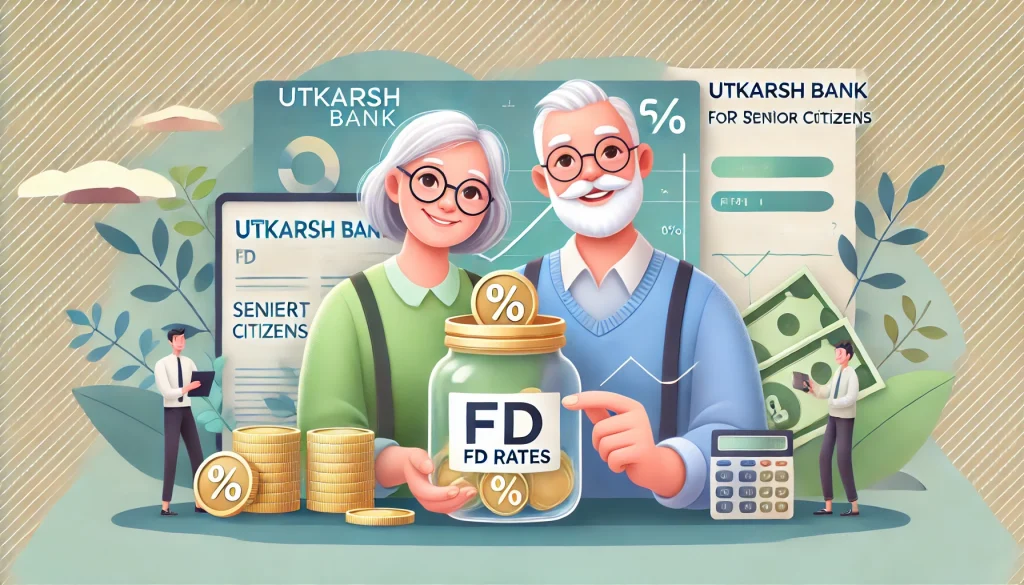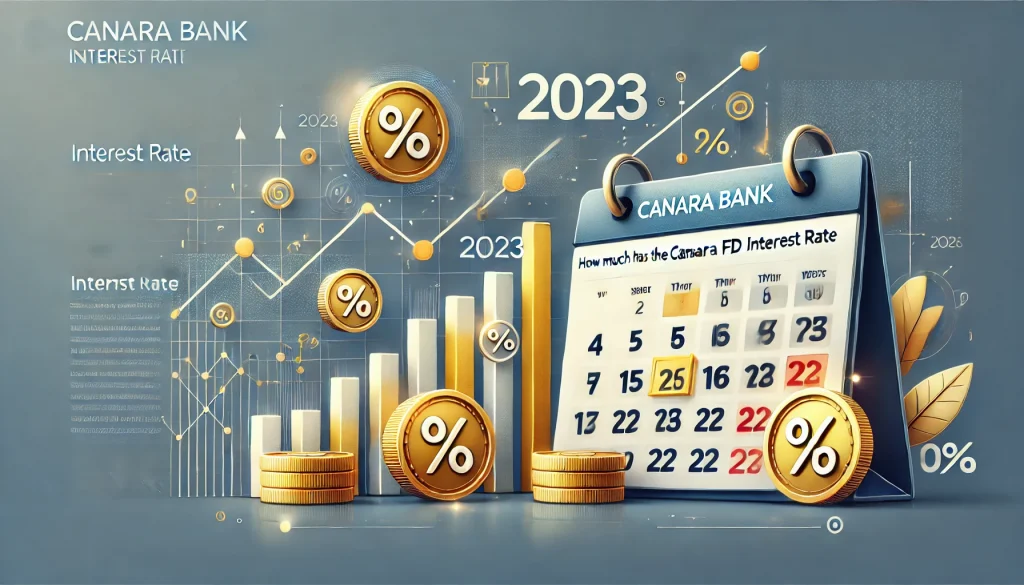
Offered by banks, fixed deposit is an investment scheme that comes in various types, each tailored to meet different financial requirements and preferences of investors. A tax-saving FD is one such type that allows an individual or entity to earn guaranteed returns while saving taxes. Let’s discuss what a tax-saving fixed deposit is and all the other relevant details you need to know.
What are Tax Saving Fixed Deposits 2024
As the name suggests, a tax-saving fixed deposit is a type of FD scheme offering tax deductions under Section 80C of the Income Tax Act 1961. It enables depositors/investors to claim a tax exemption of ₹1.5 lakhs per annum until the end of the maturity period.
How Does a Tax Saving FD Work in 2024
Tax Saving FD works on the basis of the associated terms and conditions of a particular bank or financial institution. Let’s take a look at the following step-by-step process in order to know how a tax-saving Fixed Deposit works.
- You have to choose a specific tenure for the FD scheme that suits their financial requirements and planning.
- First, you need to apply for the account opening of such an FD scheme and deposit a sum of money on which you want to earn interest.
- The bank further specifies the interest rate applicable to your FD investment.
- Your investment made in this FD scheme will offer you a tax deduction every year and will generate an interest income throughout the lock-in period.
- Once your tax-saving FD matures, the total investment value and interest income will be credited to your linked savings/current account.
Key Features of Tax Saving FD
Here are some salient features of a tax-saving bank FD that distinguish it from other fixed deposit schemes.
- Tax-saving fixed deposit accounts can be opened by a single entity in the name of a primary account holder or by a group of entities under a joint name.
- Generally, a depositor can avail of the benefits of this FD by investing a minimum amount of ₹100. All further deposits should be made in multiples of ₹100. However, deposits of more than ₹1,50,000 in a financial year are not accepted under a tax-saving FD scheme.
- This type of fixed deposit scheme has a minimum lock-in period of 5 years, while its tenure can extend to 120 months.
- Under this scheme, interest is compounded quarterly and paid out at the end of every quarter in a financial year. However, you can also opt for a monthly interest payout option.
- No premature withdrawal/closure facilities are available in a tax-saving FD scheme. However, banks allow premature withdrawal under grave circumstances, such as the depositor’s death.
- Although it provides tax benefits to depositors, the interest earned from such deposits is subject to taxation and is deducted at source.
- A depositor cannot avail loan/overdraft against FD facilities under this fixed deposit scheme.
Benefits/Advantages of Tax Saving FD
Before diving into more details about tax-saving FD, let’s first understand the many benefits of investing in such an FD scheme.
- By availing a tax-saving Fixed Deposit scheme, a depositor can claim tax exemption on an FD investment of ₹1,50,000 as per Section 80C of the Income Tax Act.
- Besides, it also provides an opportunity for all depositors to avoid TDS on the amount of interest earned by submitting Form 15H/15G.
- A tax-saving FD scheme provides nomination facilities to all eligible entities.
- Deposits made in a tax-saving FD can be easily transferred from one branch to another branch of a bank at the request of a depositor/investor.
- After maturity, a tax-saving FD can sometimes be automatically renewed for a term of 1 year. However, banks only provide regular interest rates for such renewed deposits.
- It provides additional benefits to senior citizens, including preferential tax saving FD interest rates, which is 0.50% more than all regular interest rates.
Who Should Invest in a Tax-Saving Fixed Deposit?
The following are some individuals who can benefit most by investing in a tax-saving FD and should opt for it.
- In case you have a zero risk tolerance or a low-risk appetite,
- If you are a senior citizen or nearing the retirement phase of your life,
- If you want to reduce your taxable income by availing tax benefits under Section 80C of the Income Tax Act, 1961.
Documents Required for Opening a Tax Saving FD
The eligible entities have to submit a few documents if they wish to open a tax-saving Fixed Deposit account. Here is a list of essential documents that are required for the account opening.
- 2 Passport size photographs of the applicant
- Tax-saving Fixed Deposit Application Form
- PAN Card or Form No. 60/61 of the Income Tax Act
- Address proof of the applicant as per the KYC norms (Passport, Telephone Bill, Electricity Bill)
- Identity proof of the applicant as per the KYC norms (Aadhaar, Voter TD Card, Driving Licence)
- Senior Citizen ID Card
- Bank Statement with Cheque
Eligibility for Tax Savings FD
Here is a list of entities that are eligible to open a tax-saving Fixed Deposit scheme.
- Indian Residents
- Partnership Firms
- Trust Accounts
- Hindu Undivided Families
- Limited Companies
Best Tax Saving Fixed Deposit with Interest Rates
Listed below are some of the best tax-saving fixed deposit interest rates that eligible entities can avail of in 2023.
| Banks | General Citizen Rate | Senior Citizen Rate |
|---|---|---|
| Suryoday Small Finance Bank | 8.25% | 8.75% |
| DCB Bank | 7.65% | 8.15% |
| AU Small Finance Bank | 7.45% | 7.75% |
| HDFC Bank | 7.00% | 7.75% |
| Kotak Mahindra Bank | 6.20% | 6.70% |
Things to Remember While Investing in a Fixed Deposit to Save Tax
Let’s now look at things investors need to keep in mind while planning to invest in a tax-saving FD scheme.
- A tax-saver FD is only applicable to an Indian resident who is above 18 years of age. While minors are also eligible to avail the benefits of this scheme, they can only open a joint account with an adult.
- Only banks and financial institutions can offer higher interest rates. A post office does not provide a preferential rate of interest for tax-saver FD schemes to senior citizens.
- The minimum deposit amount required to book a tax-saver Fixed Deposit scheme varies for different banks and financial institutions. Therefore, make sure to verify the amount before prioritising this type of FD.
- All eligible entities can book this type of FD scheme from any public or private bank in India. However, account opening of a tax-saver FD cannot be done through a rural or cooperative bank.
- Nomination facilities of tax-saving FD are not available in case a minor is involved.
Conclusion
This was all about the tax-saving fixed deposit scheme that you needed to know. While this scheme provides several benefits, making it an attractive investment option for many individuals, aligning those benefits with your financial requirements is in your best interest. Make sure to verify the interest rates offered by your preferred bank and carefully go through all terms and conditions before making a decision.
FAQs
A tax-saving FD account can be opened either from the online website of a bank or financial institution or through a bank representative at the nearest branch. Whichever option you choose, you need to fill out and submit an account opening form to open a tax-saving Fixed Deposit.
Under a joint tax-saving FD account, only the primary or first account holder can claim tax deductions in a financial year. Such tax benefits are not available to all joint owners of the account.
Yes, Non-Resident Indians are eligible to invest in a tax-saving Fixed Deposit scheme and claim tax deductions under Section 80C of the Income Tax Act of 1961
After a successful opening of a tax-saving Fixed Deposit account, the bank will issue a receipt to the depositor. In case you have opened the account online, you can receive the receipt from your registered email ID. On the other hand, you can also manually visit the nearest branch of your preferred bank and collect it from the counter.
Yes, thetax-saving deposit rates remain fixed throughout the 5 years of the lock-in period, irrespective of any future interest fluctuations.
Disclaimer
This article is solely for educational purposes. Stable Money doesn't take any responsibility for the information or claims made in the blog.


